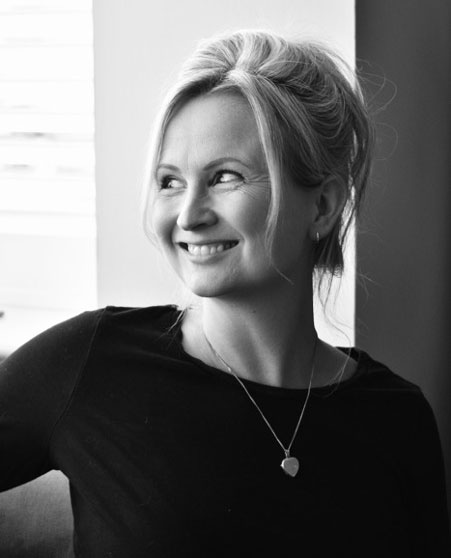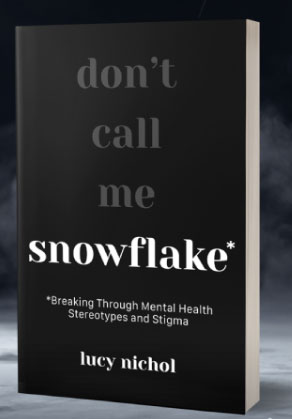In reality, it was FOMO that drove it, and I wound up with a bad case of pleurisy and pneumonia which floored me for weeks and meant I struggled to stay awake in college lectures, never mind giving it my all to the Prodigy on the dance floor (although to be fair, our maternity cover law lecturer was pretty uninspiring). I don’t know if going out specifically played a role, but it certainly can’t have helped!
The point is, nobody would have suggested I was “weak” or “snowflakey” for staying home that Saturday night. Just like nobody suggests its “weak” or “snowflakey” to take more vitamin C or blow your nose when you’re full of the cold. It’s about building resilience. It’s about stopping the small problems progressing into big problems.
And it’s the same when it comes to mental health. If people talk about spiralling anxiety, sure, they might not be impacted enough to be diagnosed with an anxiety disorder, but the talking is like a release valve. And that might play a part in preventing a build-up that could very well develop into a more serious mental health problem. Biting your lip, feeling ashamed and carrying on regardless without making use of the tools we are now more aware of (talking, seeing your GP, cutting down on caffeine, getting more sleep – whatever the particular tools might be) is unlikely to be the best approach.
In my new book Snowflake: Breaking Through Mental Health Stereotypes and Stigma, there’s an entire chapter about mental health stigma on the topic of resilience, as well as another on “attention-seeking”. These stereotypes that inhibit recovery or worsen milder symptoms that could quite easily develop into something overwhelming are clearly still kicking around and causing harm.
Another comparison I use in the book when describing resilience is the engine management light coming on in the car. OK, it might not mean there’s a problem that’s going to stop you from getting to work that day, but if you ignore it for long enough, your beloved motor could well end up on the scrapheap.
Mental health campaigner Natasha Devon also contributed to the chapter. She described resilience as “a by-product of being well supported. The more meaningful connections you have in life, the more resilient you’ll be.”
Harvard psychologist and author Dr Craig Malkin said something similar, quoting renowned psychologist Diana Fosha. He said: “Feeling without dealing tips us into disruptive emotion displays.” He also said that feeling secure thanks to close relationships and trust “blesses us with resilience.”
You can’t have these genuine connections if you don’t speak out about what’s really going on. If you just say, “I’m fine”. And you can’t deal with your feelings unless you face them head on. Are you going to shut your eyes tight and hope it all goes away, or are you going to look your problems in the eye and deal with them?
We need to stop calling this attention-seeking. We need to stop assuming that, just because younger generations are more articulate when it comes to mental health, that they are making things up or trying to suggest their problems are worse than they really are. They are just dealing with them in a way that helps them to stay more resilient. Chatting to their friends, seeking support from social media communities or cathartically blogging about their experience to make sense of it.
Get the latest news and insight into how the Big Issue magazine is made by signing up for the Inside Big Issue newsletter
Nobody is suggesting that every young person is suicidal, but given the fact that there are around 200 school age suicides in the UK each year, isn’t it time we acknowledged these problems and provided support before it’s too late? Before it snowballs into something unmanageable?
If you disagree with this, by all means, practice it in terms of physical health and see how far you get. Next time you get a cold, build your “resilience” up by trying to ignore it – no tissues, no blowing your nose, no paracetamol and no hot toddy.
Doesn’t make sense, does it? Until we put mental health on a genuine par with physical health campaigners will keep banging the same drum. If you want them to shut up, then please, refrain from telling people that they are weak, attention-seeking, or a snowflake for simply trying to look after themselves.
Snowflake: Breaking Through Mental Health Stereotypes and Stigma by Lucy Nichol is out now, published by Welbeck.











